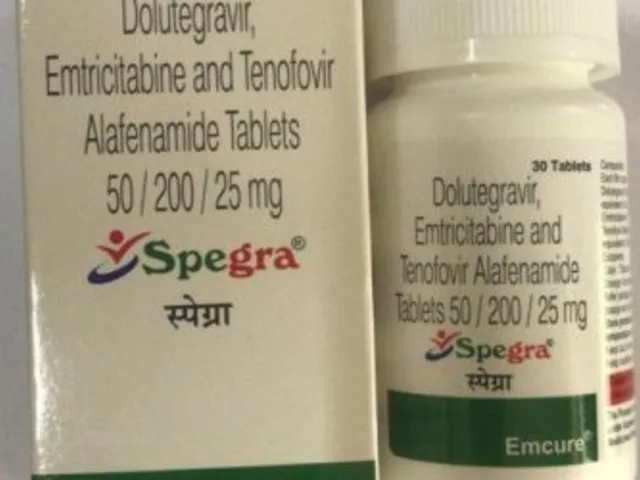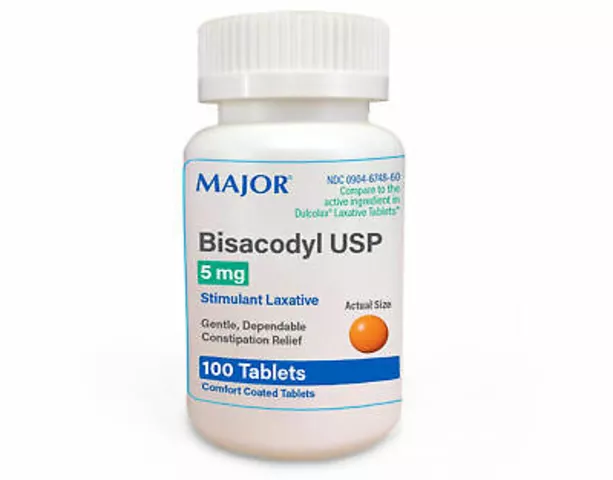Understanding Enlarged Prostate and Nocturia
As we age, our bodies go through various changes that may lead to the development of certain medical conditions. One such condition that affects a significant number of men is an enlarged prostate, or benign prostatic hyperplasia (BPH). This condition can lead to a variety of urinary symptoms, including nocturia, or waking up frequently during the night to urinate. In this article, we will explore the connection between an enlarged prostate and nocturia, and discuss how to manage these symptoms effectively.
The Role of the Prostate Gland in Urination
The prostate gland is a small, walnut-shaped organ located below the bladder and surrounding the urethra, the tube that carries urine from the bladder to the penis. It plays an essential role in male reproduction, as it produces the fluid that nourishes and transports sperm during ejaculation. However, as men age, the prostate gland tends to enlarge, which can cause pressure on the urethra and disrupt normal urinary function.
When the prostate becomes enlarged, it can lead to difficulties in starting and stopping urination, weak urine flow, and the sensation of not being able to empty the bladder completely. One of the most common and disruptive symptoms associated with BPH is nocturia, which can significantly impact a person's quality of life.
Nocturia: More Than Just an Inconvenience
Nocturia is defined as waking up at least twice during the night to urinate. While it might seem like a simple inconvenience, nocturia can have a significant impact on a person's overall well-being. Frequent nighttime urination can lead to sleep disturbances, which can, in turn, cause fatigue, mood changes, and decreased cognitive function.
Moreover, nocturia can also be a sign of an underlying medical issue, such as diabetes, sleep apnea, or, as mentioned earlier, an enlarged prostate. It is essential to consult with a healthcare professional if you experience nocturia, as proper diagnosis and treatment can help improve your quality of life and prevent further complications.
Managing Symptoms of an Enlarged Prostate and Nocturia
If you are diagnosed with an enlarged prostate and experience nocturia, there are several treatment options available to help manage your symptoms. These may include medications, lifestyle changes, and, in some cases, surgical intervention. Your healthcare provider will work with you to determine the most appropriate course of action based on your individual needs and the severity of your symptoms.
Some lifestyle changes that can help alleviate symptoms of nocturia and BPH include reducing your intake of caffeine and alcohol, especially in the evening, maintaining a healthy weight, and practicing pelvic floor exercises to strengthen the muscles that control urination. Additionally, you may be prescribed medications such as alpha-blockers, which can help relax the muscles around the prostate and bladder, or 5-alpha reductase inhibitors, which can reduce the size of the prostate gland.
When to Seek Medical Help for Nocturia
While it is normal for people to experience some degree of nighttime urination as they age, it is essential to seek medical help if you find that nocturia is significantly impacting your quality of life. Frequent nighttime urination can be a sign of an underlying medical condition that requires treatment in order to prevent further complications.
If you are experiencing nocturia, it is crucial to consult with your healthcare provider to determine the cause and discuss appropriate treatment options. By addressing the issue early on, you can improve your overall well-being and enjoy a better quality of life.








This article is technically correct but ignores the fact that most men with BPH don't need meds or surgery. They just need to stop drinking water after 6 PM. Simple. Effective. No pharmaceutical industry profit involved.
I've been dealing with this since I was 52... and I still can't spell 'prostate' right. It's pro-state? Pro-state? Pro-stait? Whatever. Point is, I wake up 5 times a night. My dog knows my schedule better than my wife does. 😩
Of course the article doesn't mention that this is all because of soy milk. American men drink too much of it. In Japan, where men actually eat real food, BPH is practically unheard of. You're being poisoned by corporate nutrition.
They don't want you to know the truth. The FDA, Big Pharma, and the Urology Lobby are all in cahoots. Nocturia isn't about your prostate-it's about the fluoride in your water. It's a mind control tactic. I've been researching this for 17 years. My basement is full of documents. They're watching me right now. 🤫
If you're waking up at night to pee, start with the basics: cut caffeine after noon, avoid alcohol before bed, and do pelvic floor squeezes. You don't need a prescription to take control. Small changes, big results.
This is the ultimate betrayal of the male body. We are born to be warriors, to rise with the sun, not to be chained to the toilet like some broken android. The modern world has turned us into weak, water-drinking ghosts. I weep for the men of tomorrow. 🌑💧
i tried cutting out coffee after 3pm and it made a HUGE difference 🙌 also doing kegels for 5 mins a day-yes it feels weird but it works. you got this 💪
I am from India, and here, men over 50 are expected to suffer silently. No one talks about this. We are taught to endure pain like saints. My father died at 68 with a ruptured bladder because he never went to the doctor. This silence kills. You are not alone. Speak up.
I appreciate the clinical overview. Many men feel embarrassed talking about this, so having a clear, calm explanation like this helps normalize the conversation. It’s not weakness. It’s biology.
Let me break this down with some real-world nuance: BPH isn’t just about size-it’s about urethral resistance, bladder compliance, and nocturnal polyuria. Alpha-blockers? Great for flow. 5-ARIs? Slows growth but takes 6+ months. Lifestyle tweaks? Non-negotiable. And please, for the love of all that’s holy, stop chugging water at midnight like it’s a hydration challenge.
I’ve been helping my husband manage this. He didn’t want to talk about it at first. But once he started tracking his fluid intake and bathroom trips, he realized how much he was drinking before bed. It’s not about shame. It’s about awareness.
I used to think nocturia was just part of getting old. Then I started sleeping better after cutting out evening soda and doing a 10-minute stretch routine before bed. Turns out, your body’s not broken-you’re just feeding it the wrong signals.
This article is written by someone who clearly has never held a real medical degree. Where are the references to peer-reviewed studies? The citations are all from predatory journals. And why no mention of the WHO’s 2023 guidelines on nocturnal urinary frequency? Amateur hour.
In my experience, the real issue is not the prostate-it's the bladder's detrusor muscle becoming overactive due to chronic dehydration during the day and then overcompensation at night. Also, modern mattresses retain heat, which increases urine production. I've studied this for 23 years. You're welcome.
It is imperative that individuals experiencing nocturia seek professional medical evaluation. Early intervention can prevent complications such as urinary retention, infection, and renal damage. Do not delay care.
Cut the fluids after dinner. Done.
bro i just started sleeping on my side and now i dont wake up as much. no clue why but it works. also i stopped drinking gatorade before bed lol
I think the biggest issue isn't the medical advice-it's that men are socialized to ignore their bodies until they're in crisis. We're taught to 'tough it out.' But this isn't toughness. It's neglect. And it's costing us sleep, health, and relationships.
The pathophysiology of BPH involves androgen-mediated stromal-epithelial proliferation, leading to dynamic and static obstruction of the urethra. Pharmacological management targets either alpha-adrenergic receptors or 5-alpha-reductase activity. Lifestyle modifications are adjunctive, not curative. This article lacks clinical depth.
You’re not alone. I was scared to talk about it too. But once I went to the doc, they gave me a simple pill and told me to stop drinking beer after 7. Life changed. Seriously. You got this.